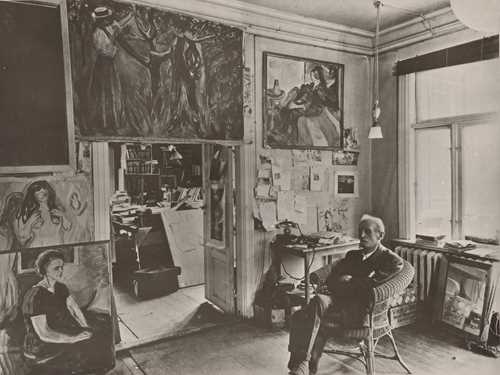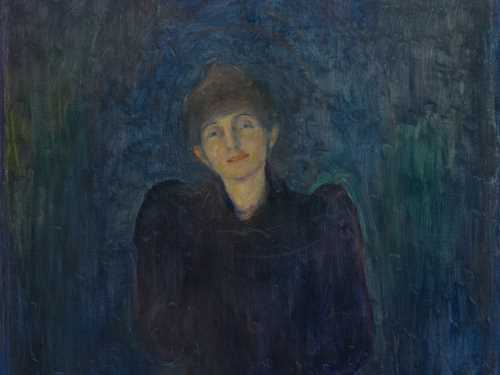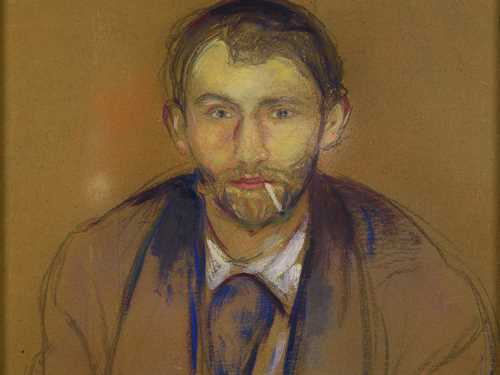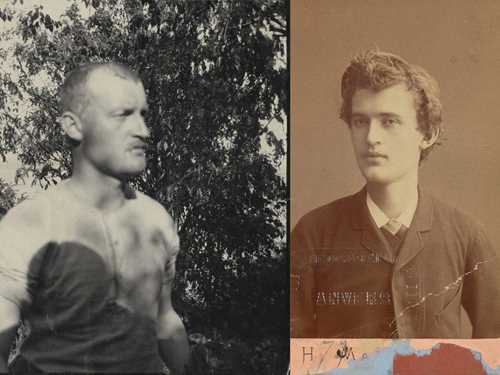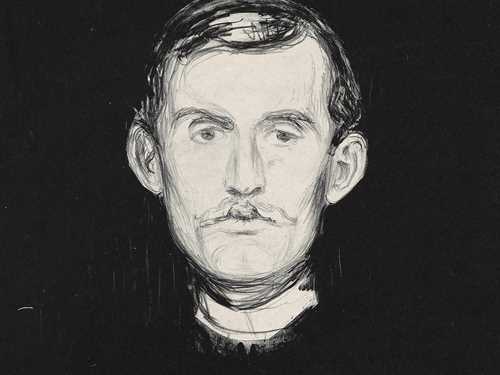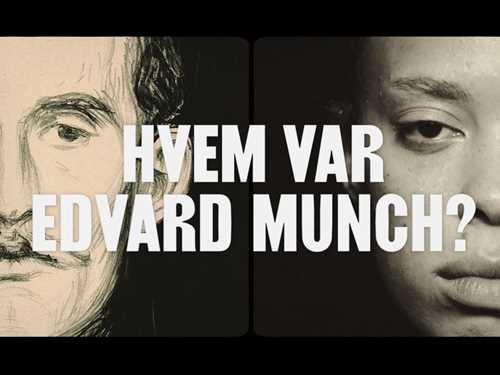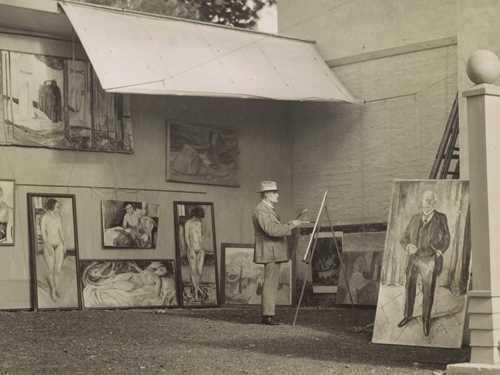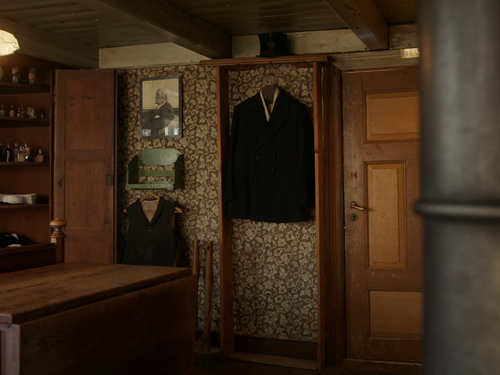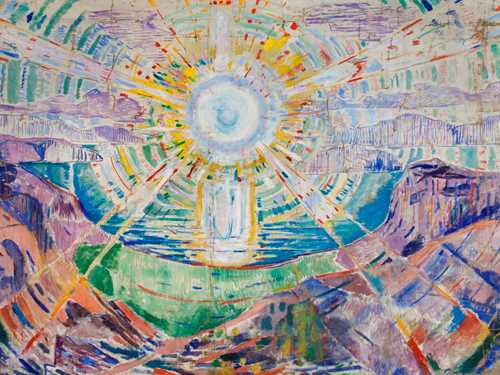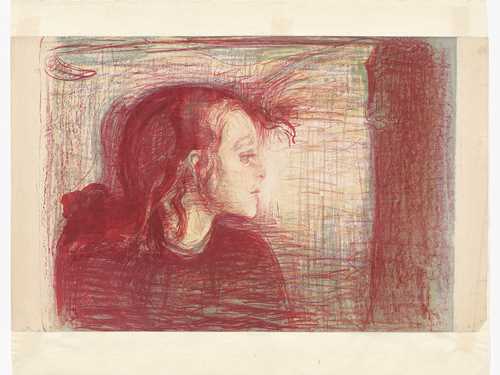August Strindberg (1849–1912)
August Strindberg was a celebrated Swedish playwright and novelist who would ultimately achieve worldwide fame. Through works such as the play Miss Julie and the novel The Red Room, he challenged conventional ideas about morality, social class and power structures. Both in his everyday life and in his writing he was a provocateur who often came into conflict with those around him, but he had a reputation as the life and soul of social occasions. Strindberg also explored mysticism with the aim of revolutionizing the natural sciences and was a self-taught painter.
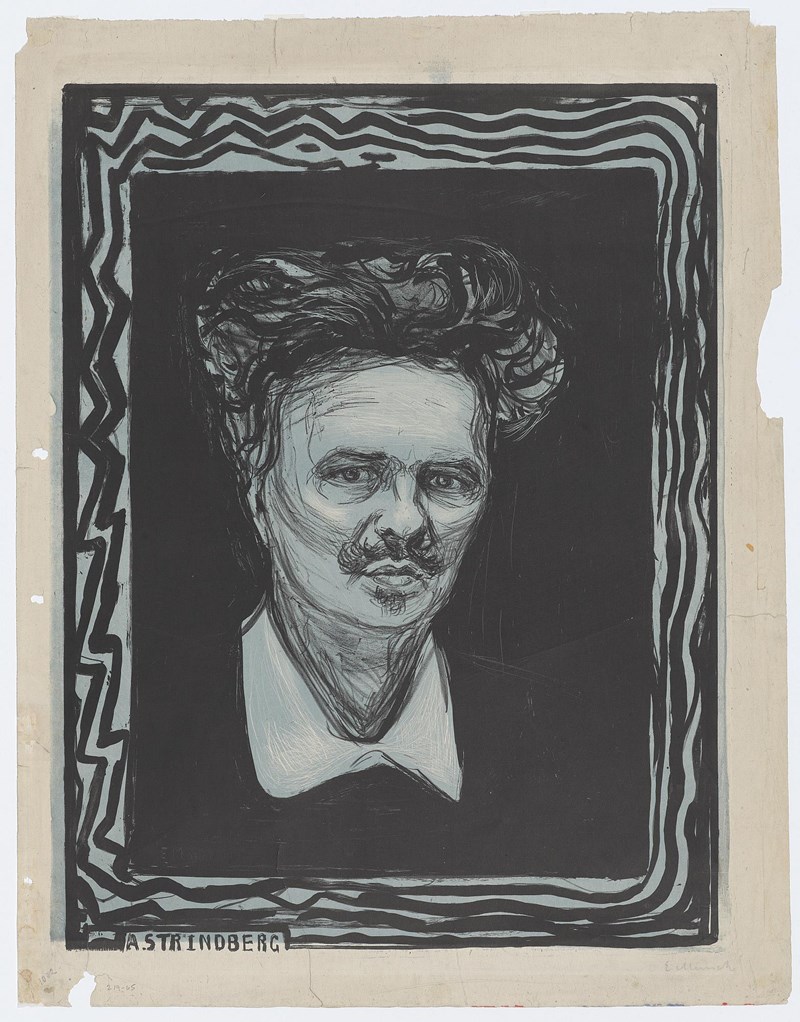
Edvard Munch: August Strindberg. Litograph, 1896. Photo © Munchmuseet
August Strindberg grew up in Stockholm in a middle-class home. After abandoning plans to become a doctor, his attempts to succeed as an actor led him to start writing his own plays. Strindberg aspired to be a ‘universal genius’. He wrote books about the history of Sweden and Stockholm, immersed himself in Chinese language and culture, and experimented with occultism and alchemy. He was also a self-taught expressionistic painter.
Strindberg achieved worldwide fame as a novelist and dramatist. His most famous works include his debut novel The Red Room and the plays Miss Julie and A Dream Play. Munch first got to know Strindberg in 1892, after arriving in Berlin to hang his major (and soon-to-be scandalous) exhibition at the Association of Berlin Artists. It was Strindberg who discovered a wine tavern named Gustav Türkes Weinhandlung und Probierstube (Gustav Türkes Wine Shop and Wine Tasting Bar). The screeching sound made by the Armenian wine sacks chained above the entrance as they swung in the wind inspired Strindberg to dub the wine tavern Zum schwarzen Ferkel (The Black Piglet). Strindberg became a leading figure in the circle of German and Scandinavian writers and artists who frequented the Ferkel. In addition to participating in intellectual discussions, Strindberg was also an exuberant reveller who liked to entertain others with songs and gambling games well into the small hours.
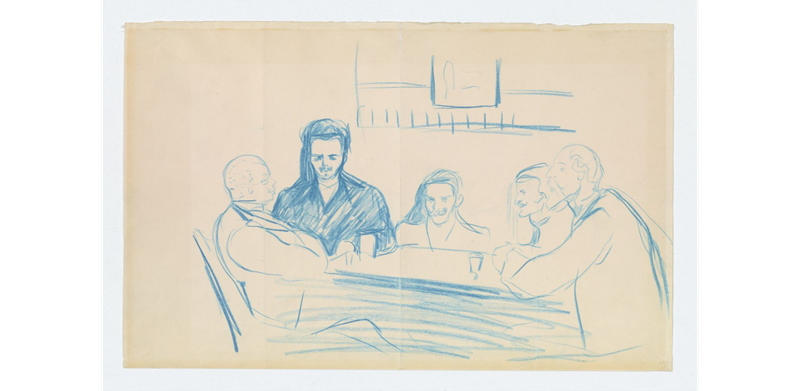
Edvard Munch: Artists Around a Table. Zum Schwartzen Ferkel. Crayon, 1893 (plausible). Photo: © Munchmuseet
Strindberg and Edvard Munch had a common project in their desire to explore the drama of people’s interior lives. Like Munch, Strindberg experienced a succès de scandale in Berlin. In 1890, the avant-garde theatre Freie Bühne staged Strindberg’s play The Father. The rapidity with which the censor ended the run greatly increased interest in the play’s author. In 1892, a production of Miss Julie opened at the same venue. However, noisy protests from women in the audience forced the cancellation of further performances.
Life was never peaceful around Strindberg, who was constantly embroiled in professional disputes and personal conflicts. He is said to have embarked on a brief affair with the young musician and writer Dagny Juel, after Munch brought her to the Ferkel in 1893. After a while, Juel apparently rejected Strindberg on the grounds he was too old and fat, earning Strindberg’s hatred.
In 1896, Strindberg and Munch crossed paths again in Paris. The reunion was not a success. Strindberg was in a state of deep crisis and had become severely paranoid. Among other things, he believed that Munch intended to poison him. Later that same year, Munch painted a portrait of Strindberg, which he also made into a lithographic print.
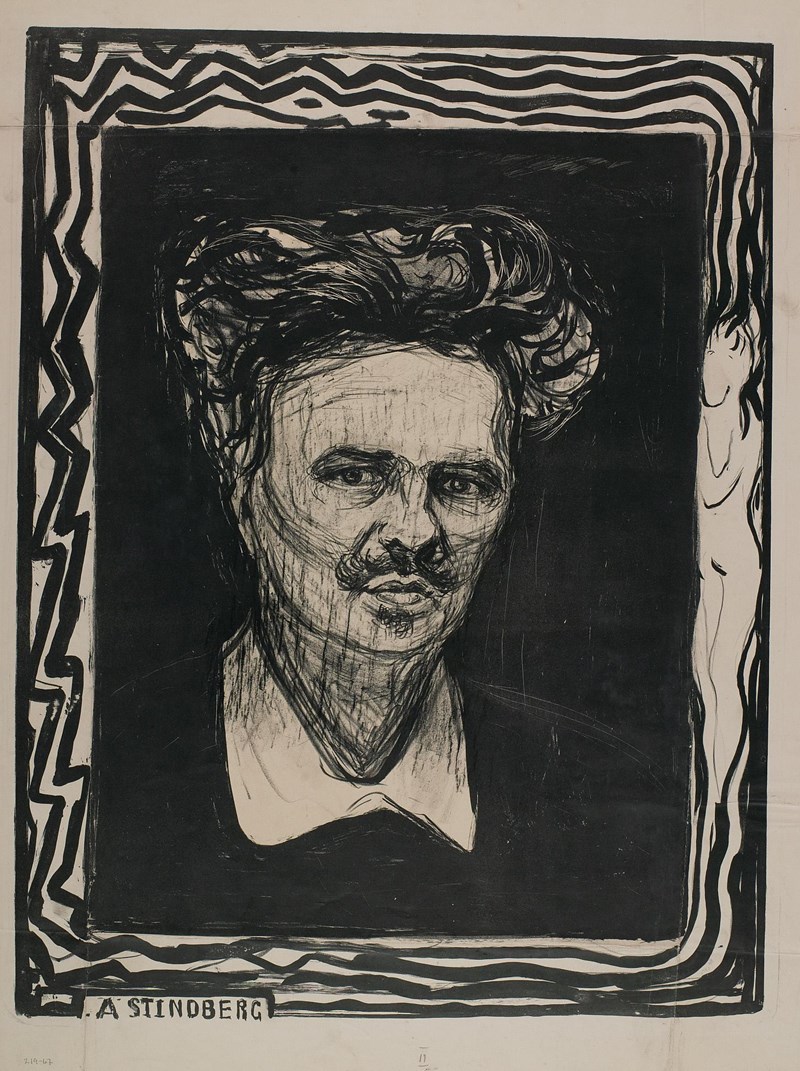
Edvard Munch: August Strindberg. Litograph, 1896. Photo © Munchmuseet
Strindberg took offence both at Munch’s inclusion of a naked woman in the jagged border around the print and at Munch’s omission of the first ‘R’ his name, so that it was spelt ‘STINDBERG’. Strindberg flew into a rage and threatened to kill Munch. Munch found himself obliged to make a revised version without the naked woman and with the ‘R’ reinstated in Strindberg’s name.
In the interactive experience Munch's Memories in the lobby of the museum, we invite children and young people to step into Edvard Munch's body and become part of his world. Here you can inhabit various characters from Munch's life, including the temperamental author August Strindberg.
